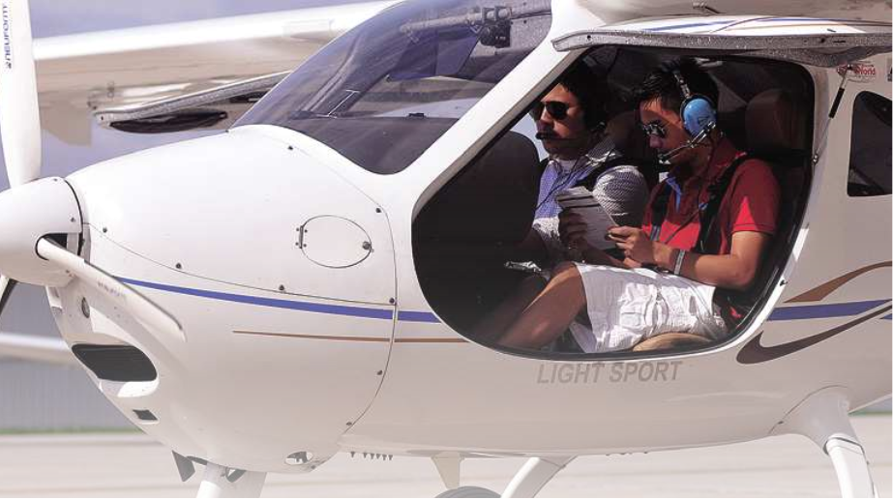It was a hot June day. The year was 2008. He was riding home on a sports bike that he had bought with his own money.
So far, his parents knew nothing about the bike due to the fact that he had successfully hidden it from them. All he remembers is wanting to go swimming. The thought of jumping into his pool and feeling that cool, smooth water hitting his back had completely overtaken him as he paused at the stoplight.
But then it happened.
Someone pulled out in front of him. The next thing 20-year-old Wesley Major remembered was the EMT asking him what his house number was in order to have someone be by his side once he arrived at the hospital.
He recalls being conscious enough to scream, “No!” because he knew he’d be in big trouble if his parents found out about the Yamaha YZF. But before he passed out, he relinquished his house number and when he woke up, not only did he find his parents there at his side, but he also found his spinal cord had been completely severed.
He was paralyzed from the waist down.
“While I was in rehab and in the hospital, I was accepting of it. I wasn’t bitter or anything, but once I got out and had to actually function in the real world, that’s when the depression and all of the negative emotions came into play,” Major said. “After about six months of that, I got out of my rut and got back into the swing of things and everything went back to as close as normal as it could.”
It was during rehab that Major met his mentor, Sean O’Donnell. For months, O’Donnell told Major of his participation in a flight-training program known as Able Flight that allowed O’Donnell the opportunity to “finally answer the call of a lifelong obsession.”
As quoted on their website, Able Flight’s mission is to “offer people with disabilities a unique way to challenge themselves through flight and aviation career training, and by doing so, to gain greater self-confidence and reliance.”
Able Flight partnered with Purdue in 2009. Through generous donations and sponsorships of different foundations and corporations, the program is now able to offer four different types of scholarships from $8,000 to $10,000 which allow some recipients to train at Purdue.
“When they earned their certificate, they didn’t get a shortcut. They’re the same requirements they have you do, or any other person, able-bodied or not,” associate professor of aviation technology Bernard Wulle said. “There’s no cutting corners.”
But three years ago, Purdue came up with its own syllabus that doubles the requirements that these recipients must reach and maintain, so students get twice as many training hours as required by the FAA.
“Our program is taught at a very high standard, at a very high level and out of that comes the full realization that they’ve earned it. It wasn’t given to them in any way,” Wulle said.
It wasn’t until after he had earned his undergraduate degree in aviation technology that Wesley decided to apply for an Able Flight scholarship.
Charles Stites, executive director of Able Flight, remembers Major’s application well.
“I looked at Wesley’s (application) and I remember thinking that it hadn’t been long since his accident. ‘Perhaps he’s not ready; perhaps he hasn’t acclimated yet,’” said Stites. “I could see some positives in that he had recently finished college, but he was still around home, he hadn’t traveled very much and this was a huge change to come here and do this. At the time that we were considering his application, I told O’Donnell about my reservations. But he assured me that (Major) could prove himself, and he certainly did.”
Wulle went on to say Wesley was a good pilot. He soloed earlier than most. He’s got a good command of what he has. What makes a good pilot isn’t so much your physical skills, but your decision-making capability. Major has that.
Since completing his flight training, Major has earned his master’s in aviation technology and was recently accepted into the Ph.D. program. He has also served as a volunteer assistant program director for Able Flight for the past three years. With this duty comes the responsibility of introducing scholarship recipients to Purdue’s campus.
This year’s flight training scholarship recipients come from across the country and face challenges from a variety of disabilities. Receiving scholarships to train at Purdue are Scot Abrams of New York, a former Marine who served as a police officer and was paralyzed in an accident while on duty; Stephen Carrier of Louisiana, who became paralyzed in a motor vehicle accident; Raymart Tinio of California, who is deaf; and John Robinson of North Carolina, a Navy veteran who was paralyzed in an auto accident.
“There’s nothing more empowering, so to speak, when you’re piloting an aircraft yourself, when you know that you ditched your instructor and you’re totally independent up there. When you’re up in the sky, you have unconstrained mobility compared to when you’re on the ground because you can go wherever up there versus when you’re down here in a wheelchair. I hope they can come to appreciate that,” Major said.






















(0) comments
Welcome to the discussion.
Log In
Keep it Clean. Please avoid obscene, vulgar, lewd, racist or sexually-oriented language.
PLEASE TURN OFF YOUR CAPS LOCK.
Don't Threaten. Threats of harming another person will not be tolerated.
Be Truthful. Don't knowingly lie about anyone or anything.
Be Nice. No racism, sexism or any sort of -ism that is degrading to another person.
Be Proactive. Use the 'Report' link on each comment to let us know of abusive posts.
Share with Us. We'd love to hear eyewitness accounts, the history behind an article.